Related Research Articles

Creationism is the religious belief that nature, and aspects such as the universe, Earth, life, and humans, originated with supernatural acts of divine creation. In its broadest sense, creationism includes a continuum of religious views, which vary in their acceptance or rejection of scientific explanations such as evolution that describe the origin and development of natural phenomena.

Sir Fred Hoyle (24 June 1915 – 20 August 2001) was an English astronomer who formulated the theory of stellar nucleosynthesis and was one of the authors of the influential B2FH paper. He also held controversial stances on other scientific matters—in particular his rejection of the "Big Bang" theory (a term coined by him on BBC Radio) in favor of the "steady-state model", and his promotion of panspermia as the origin of life on Earth. He spent most of his working life at St John's College, Cambridge and served as the founding director of the Institute of Theoretical Astronomy at Cambridge.
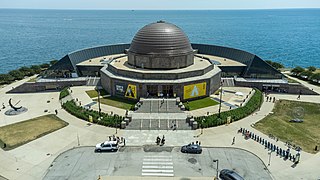
The Adler Planetarium is a public museum in Chicago, Illinois, dedicated to astronomy and astrophysics. It was founded in 1930 by local businessman Max Adler. Located on the northeastern tip of Northerly Island on Lake Michigan, the Adler Planetarium was the first planetarium in the United States. It is part of Chicago's Museum Campus, which includes the John G. Shedd Aquarium and The Field Museum. The Planetarium's mission is to inspire exploration and understanding of the universe.
Frank Jennings Tipler is an American mathematical physicist and cosmologist, holding a joint appointment in the Departments of Mathematics and Physics at Tulane University. Tipler has written books and papers on the Omega Point based on Pierre Teilhard de Chardin's religious ideas, which he claims is a mechanism for the resurrection of the dead. He is also known for his theories on the Tipler cylinder time machine. His work has attracted criticism, most notably from Quaker and systems theorist George Ellis, who has argued that his theories are largely pseudoscience.

Lisa Randall is an American theoretical physicist and Frank B. Baird, Jr. Professor of Science at Harvard University. Her research includes the fundamental forces of nature and dimensions of space. She studies the Standard Model, supersymmetry, possible solutions to the hierarchy problem concerning the relative weakness of gravity, cosmology of dimensions, baryogenesis, cosmological inflation, and dark matter. She contributed to the Randall–Sundrum model, first published in 1999 with Raman Sundrum.
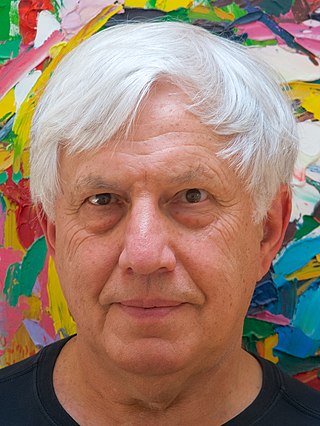
Andrei Dmitriyevich Linde is a Russian-American theoretical physicist and the Harald Trap Friis Professor of Physics at Stanford University.

George Vincent Coyne, S.J. was an American Jesuit priest and astronomer who directed the Vatican Observatory and headed its research group at the University of Arizona from 1978 to 2020.

Edwin Charles Krupp is an American astronomer, researcher, author, and popularizer of science. He is an internationally recognized expert in the field of archaeoastronomy, the study of how ancient cultures viewed the sky and how those views affected their cultures. He has taught at the college level, as a planetarium lecturer, and in various documentary films. He has been the director of the Griffith Observatory in Los Angeles since first taking over the position in 1974 after the departure of the previous director, William J. Kaufmann III. His writings include science papers and journal articles, astronomy magazine articles, books on astronomy and archaeoastronomy for adults, and books explaining sky phenomena and astronomy to children.

Henry Margenau was a German-American physicist and philosopher of science.

Sean Michael Carroll is an American theoretical physicist and philosopher who specializes in quantum mechanics, cosmology, and the philosophy of science. He is the Homewood Professor of Natural Philosophy at Johns Hopkins University. He was formerly a research professor at the Walter Burke Institute for Theoretical Physics at the California Institute of Technology (Caltech) department of physics. He also is currently an external professor at the Santa Fe Institute, and he has been a contributor to the physics blog Cosmic Variance, where he has published in scientific journals such as Nature as well as other publications, including The New York Times, Sky & Telescope, and New Scientist. He is known for his atheism, his vocal critique of theism and defence of naturalism. He is considered a prolific public speaker and science popularizer. In 2007, Carroll was named NSF Distinguished Lecturer by the National Science Foundation.
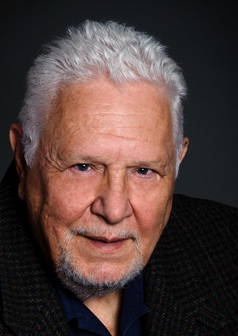
Victor John Stenger was an American particle physicist, philosopher, author, and religious skeptic.
Scientific literacy or science literacy encompasses written, numerical, and digital literacy as they pertain to understanding science, its methodology, observations, and theories. Scientific literacy is chiefly concerned with an understanding of the scientific method, units and methods of measurement, empiricism and understanding of statistics in particular correlations and qualitative versus quantitative observations and aggregate statistics, as well as a basic understanding of core scientific fields, such as physics, chemistry, biology, ecology, geology and computation.
The Carnegie Institution for Science, also known as Carnegie Science and the Carnegie Institution of Washington, is an organization in the United States established to fund and perform scientific research. The institution is headquartered in Washington, D.C. As of June 30, 2020, the Institution's endowment was valued at $926.9 million. In 2018 the expenses for scientific programs and administration were $96.6 million. Eric Isaacs is president of the institution.
Clifford Victor Johnson is a British theoretical physicist and professor at the University of California, Santa Barbara department of Physics.
The Trotter Prize is awarded at Texas A&M University and is part of an endowed lecture series. It is awarded "for pioneering contributions to the understanding of the role of information, complexity and inference in illuminating the mechanisms and wonder of nature" and includes The Trotter Lecture which "seeks to reveal connections between science and religion, often viewed in academia as non-overlapping, if not rival, worldviews.
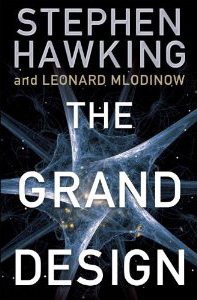
The Grand Design is a popular-science book written by physicists Stephen Hawking and Leonard Mlodinow and published by Bantam Books in 2010. The book examines the history of scientific knowledge about the universe and explains eleven-dimensional M-theory. The authors of the book point out that a Unified Field Theory may not exist.

Robert Miller Hazen is an American mineralogist and astrobiologist. He is a research scientist at the Carnegie Institution of Washington's Geophysical Laboratory and Clarence Robinson Professor of Earth Science at George Mason University, in the United States. Hazen is the Executive Director of the Deep Carbon Observatory.

Don Lincoln is an American physicist, author, host of the YouTube channel Fermilab, and science communicator. He conducts research in particle physics at Fermi National Accelerator Laboratory, and was an adjunct professor of physics at the University of Notre Dame, although he is no longer affiliated with the university. He received a Ph.D. in experimental particle physics from Rice University in 1994. In 1995, he was a co-discoverer of the top quark. He has co-authored hundreds of research papers, and more recently, was a member of the team that discovered the Higgs boson in 2012.
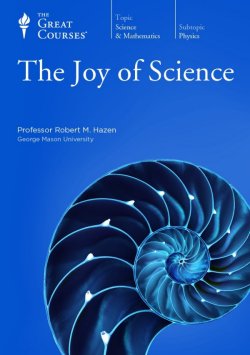
The Joy of Science is a popular video and audio course series, consisting of 60 lectures, each 30 minutes long, presented by Robert Hazen of the George Mason University and the Carnegie Institution of Washington. The course, first introduced in 2001, is part of The Great Courses series, and is produced and distributed by The Teaching Company, located in Chantilly, Virginia, in the United States.
Michael Riordan is an American physicist, science historian and author.
References
- ↑ Levens, R.G.C., ed. (1964). Merton College Register 1900-1964. Oxford: Basil Blackwell. p. 527.
- ↑ "Science Writer James Trefil to Speak, Media Relations, Carlton College". Press releases. Carlton College. 27 October 2003. Retrieved 21 January 2019.
- 1 2 3 "Trefil, James S, 1938 -". Encyclopedia.com. Retrieved 21 January 2019.
- ↑ Knappenberger, Paul Henry; Trefil, James (1999). A Guide to the Adler Planetarium & Astronomy Museum (Paperback). Adler Planetarium. OCLC 42138299 . Retrieved 23 January 2019.
- ↑ "Gemant Award Bestowed on Trefil". Physics Today. 54 (3): 91. March 2001. Bibcode:2001PhT....54R..91.. doi:10.1063/1.1366074.
- ↑ "American Institute of Physics announces awards for best science writing". phys.org. 13 February 2018. Retrieved 13 May 2018.
- ↑ "James Stanley Trefil - Who's Who Lifetime Achievement". Who's Who. 2017-06-07. Retrieved 21 January 2019.
- ↑ "New and Notable". Skeptical Inquirer. 41 (4): 60. 2017.
- 1 2 "Intelligent Design". researchgate.net. Retrieved 21 January 2019.
- ↑ "The facts of Life". ABE books. Retrieved 22 January 2019.